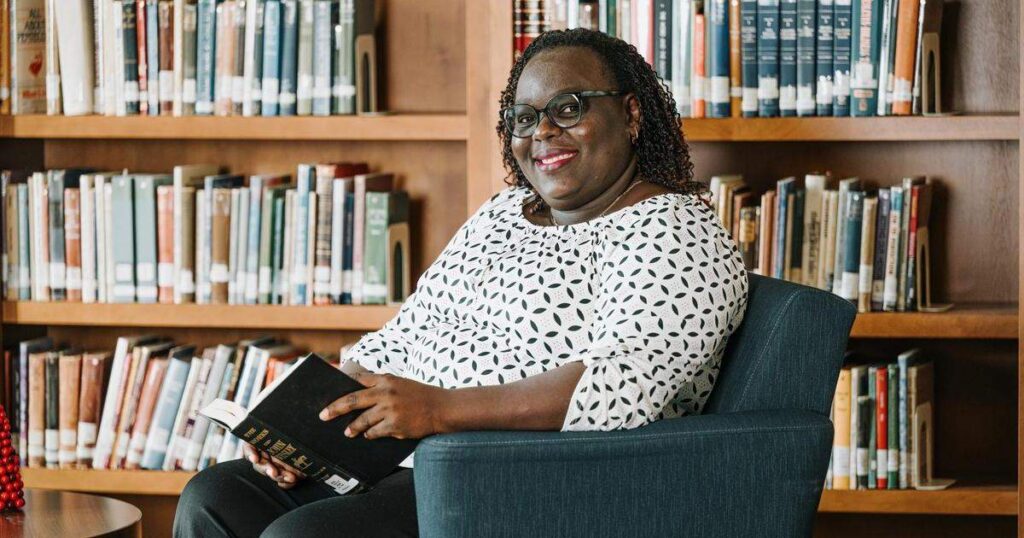How do I Decide Whether Grad School Is Right For Me?
Emma graduated with her Bachelor’s degree in Business Administration in 2021. She is working as a sales representative at a large pharmaceutical company. She’s earning top dollar, planning to get married next year, and she has plans to start her own company down the road. She’s considering getting an MBA but isn’t sure it would be a good investment of her time and finances.
Ryan is 44 and a 3rd-grade teacher. When he got his teaching degree 22 years ago, he knew that he’d eventually need more education to advance his career. He’s interested in becoming a school counselor, but the process seems a bit daunting. He’s married with two growing kids and a mortgage.
Like Emma and Ryan, if you have a college degree you have probably considered getting an advanced degree. How do you know if this step is right for you? It’s definitely an investment of both time and finances. Is it worth it? Like most things in life, the answer is, “It depends.” Here are some ideas to consider:
Career Advancement or Pivots
Some professions require or prefer advanced degrees. There are the obvious ones like medicine and law, psychology and counseling. But there are less obvious choices as well. To move up the pay scale in public education, for example, you must earn an advanced degree. If you are an artist or writer, a Master in Fine Arts gives you an opportunity to expand your portfolio and make new connections. Considering your career path is probably the first and most important step in deciding whether graduate school is right for you. Ryan, our 3rd grade teacher, is interested in school counseling. This career shift would require him to get a new degree as well as complete a practicum before he is eligible for a school counselor’s license. If you are unclear about the impact a degree will have on your career or are unsure of your career aspirations, take some time to clarify your goals and do some research before diving in.
Personal Growth
Graduate school will challenge you intellectually and personally. It can enhance critical thinking, problem-solving and research skills, all of which foster personal growth and development. If you have an area of specialized interest, an advanced degree also allows you to explore your interest in depth. For some, the opportunity to grow intellectually is a good enough reason to pursue a new degree. For others, it is not. Your stage of life, your current career and your future goals all impact this choice.
Financial Considerations
Your financial situation has an obvious impact on your decision. Emma, our sales rep, is planning a wedding, and her interest in an MBA is motivated by her longer-term interest in starting her own business. Graduate school is expensive, and in Emma’s situation, there is no guarantee of a future windfall in earnings. She must weigh the potential cost vs. the benefits to help her decide if now is the best time to pursue a new degree. Another consideration is any potential loss of income while you are pursuing your new degree. Will you be able to maintain a full-time job and still fulfill the requirements?
Personal and Family Circumstances
Take stock of your current personal commitments. What does your life situation require of you? Having young children who need a good bit of care is vastly different from parenting teenagers or young adults. Do you have any health concerns or are you a caregiver for someone else? How is your mental health? Are you prone to anxiety? Graduate school can be mentally and emotionally demanding. Do you have a good support system, either with family or friends?
Networking and Market Considerations
Graduate programs often provide a platform for networking with professors, fellow students, and professionals in your field. Building these connections can be valuable for future collaborations, job opportunities, and mentorship. Equally important is to consider the job market in your field. Will a graduate degree give you an edge? Research trends in your area of interest and speak with other professionals to help you sort through the benefits of having an advanced degree.
So what about Emma and Ryan? What did they decide? Emma decided to put her MBA on hold until at least a year after her wedding. She also decided she needed to clarify her future entrepreneurial goals before jumping into an MBA program. Ryan decided to go for his school counseling degree now. His wife is supportive and excited for him. Her income as a nurse will help sustain the family income while he pursues this next step in his career, and his summer breaks as an educator give him a bit of space to satisfy the requirements of his degree.
Weighing the benefits vs. cost of a graduate program is highly personal. There is no matrix or rubric to follow. It’s a calculus based on your personal circumstances, your career aspirations, and a host of personal, financial and family considerations. There is no right or wrong in whatever you decide. Your choice must be right for you!







